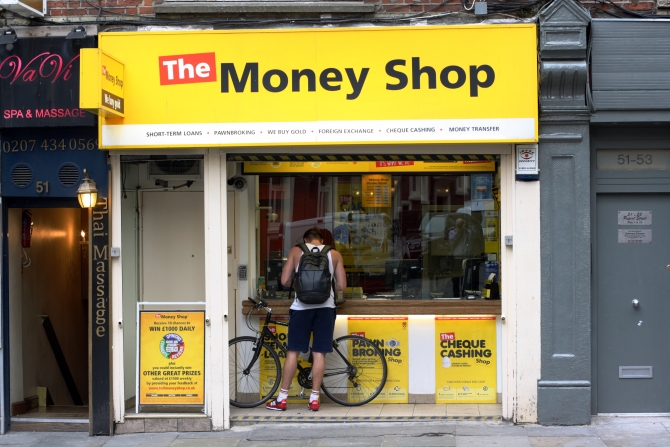No-one, least of all landlords, likes to see empty shops blighting the high street. However, many of the occupiers taking up space around the country are not contributing to the overall health of local communities, a new study into the country’s “unhealthiest” high streets claims.

The Royal Society for Public Health examined the high street offering in 70 areas in the UK and compiled the findings into a table revealing which were geared towards offering the public healthy lifestyle choices and which were likely to have a negative impact upon the wellbeing of local consumers.
High streets with a wide offer of leisure facilities, health services and stores offering fresh grocery options were deemed positive while those with a high concentration of payday loan shops, bookmakers, tanning studios and fast food outlets came in at the other end of the scale.
According to the results, Preston in Lancashire was deemed to have the unhealthiest high street, with Middlesbrough, Coventry and Blackpool followed closely behind. Whitechapel was deemed to have the most unhealthy high street in London.
Conversely, Shrewsbury in Shropshire scooped the “healthiest” high street accolade, slightly above Ayr, Salisbury and Perth.
Although betting shops were included in the “unhealthy” category by the Royal Society for Public Health, the Association of British Bookmakers argues that the gambling outlets prevalent on many high streets have been adding value and diversity to town centres for a long time now.
Representative Peter Craske says; “We’ve been trading on the high street for fifty years, and we employ 40,000 people and serve over eight million customers.
“The majority of our shops have been in the same location for over 20 years and as with any other retailer we open because there are customers for our products.”
In recent years, the government has attempted to tackle the spread of bookmakers on the high street by introducing measures such as allowing councils to refuse permission to expand and new planning laws designed to ease the transition to “positive other uses” such as cafés and health clubs. In addition, it has raised gambling taxes, especially on in-store gaming machines, to discourage overuse by the public.
However, the Royal Society for Public Health does not believe that enough is being done to tackle unhealthy elements on the high street, and is calling for the government to implement a 5 per cent limit upon each type of “unhealthy” business as a means of avoiding saturation.
Furthermore, it believes that public health criteria should become a condition of licensing for all types of businesses wishing to open on the high street, with local authorities given more powers to “veto” new openings should they not meet certain standards.
Society chief executive Shirley Cramer believes that these measures could improve public health in low income areas in particular, as the study found a greater concentration of unhealthy high streets in the north of England and in the Midlands.
She says; “Our research does find higher concentrations of unhealthy businesses exist in places which already experience high levels of deprivation and premature mortality.”
Do you think these measures would prove beneficial or would they simply cause an increase in High Street vacancy rates?
Previous Post
“Fantastic Response” to TfL Property Partnership Tender